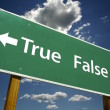What Is the True Understanding of Causality?
by Dr. Dennis Bonnette
Filed under Philosophy

The classical proofs for God’s existence, particularly St. Thomas Aquinas’ Five Ways, employ the notion of causality – both efficient and final. In that context, many misunderstandings arise concerning the true metaphysical meaning of the principle of causality. This article will assume the validity of the metaphysical first principles of non-contradiction and sufficient reason, which were established as true in my previous Strange Notions article on the first principles – and... Read More
Are Metaphysical First Principles Universally True?
by Dr. Dennis Bonnette
Filed under Philosophy, The Existence of God

Today, certain lines of attack against classical proofs for God’s existence, such as St. Thomas Aquinas’ Five Ways, seek to undermine foundational metaphysical first principles such as causality, sufficient reason, or even non-contradiction.1 Such attacks employ, for example, claims that (1) David Hume’s critique of causality is definitive, (2) the existence of the cosmos is simply a “brute fact,” needing no explanation, and (3) modern physics shows that the principle of non-contradiction... Read More
Naturalism’s Epistemological Nightmare
by Dr. Dennis Bonnette
Filed under Atheism, Philosophy

Metaphysical naturalism, usually identified with scientific materialism, is not to be confused with methodological naturalism, which maintains, at least in principle, that the scientific method confines itself to natural explanations without any philosophical bias against the supernatural. Metaphysical or philosophical naturalism insists that only entities empirically verifiable by natural science exist, which excludes all supernatural beings, especially God. The truth value of all scientific... Read More
On Liberty and Freedom: A Dialogue
by Lucas Holt
Filed under Man

I travelled down to New York Harbor to meet my dear friend Franz. No sooner had I arrived at our meeting place than when the sun began to emerge from its hiding place and light up the sky above and the waters beneath. As it leapt up from its abode its warm rays stretched out and rested on the cold and fragile buildings of the city. There is something about a sunrise that gives one hope. Soon I noticed Franz approaching in the distance. “Hello, friend!” he shouted from afar. “Good... Read More
Sympathy for the Borg
by Matthew Allen Newland
Filed under Anthropology, Movies/TV

The idea of the mystical body of Christ has always been one of great interest to me, as there was always something about it at odds with the mentality in which I was raised: "Be yourself", etc. was (and remains) the mantra of the day, and the whole idea of being but a single part of something larger did not always sit well. I remember being a ten-year-old watching as the Borg stripped Captain Picard of his identity and "assimilated" him into their collective (his pronoun "I" replaced with... Read More
How Do You Know You’re Not in the Matrix?
by Karlo Broussard
Filed under Man

At the heart of the philosophy of Aristotle and St. Thomas Aquinas is the idea that we come into contact with reality through the senses. But what if our senses are not a reliable source? Perhaps our senses are deceiving us, and everything we perceive isn’t real but is merely an illusion like in the movie The Matrix. Descartes This skepticism of sense knowledge was part of René Descartes’s methodic doubt, which many radical skeptics have adopted. Descartes argued: Whatever I have... Read More
Do Theological Claims Need to be Falsifiable?
by Dr. Edward Feser
Filed under Belief, Christianity and Science

Antony Flew’s famous 1950 article “Theology and Falsification” posed what came to be known as the “falsificationist challenge” to theology. A claim is falsifiable when it is empirically testable—that is to say, when it makes predictions about what will be observed under such-and-such circumstances such that, if the predictions don’t pan out, the claim is thereby shown to be false. The idea that a genuinely scientific claim must be falsifiable had already been given currency... Read More
Is It Reasonable to Believe in Miracles?
by Karlo Broussard
Filed under Belief

Should I believe in miracles? This question doesn’t pertain to whether I should believe in this miracle or that miracle. It has to do with whether I’m rationally justified in believing in miracles as such. David Hume's Wisdom for the Wise The eightenth-century Scottish skeptic philosopher David Hume argued the wise man should not believe in miracles. The basis for his assertion was what might be called the “repeatability principle”—evidence for what occurs over and over (the... Read More
Is God Necessary for Human Happiness?
by Karlo Broussard
Filed under God, Man

Christians have always heard that only God can make them happy. In fact, some Bible translations render Psalm 16:2 as, "You are my God. My happiness lies in you alone." But an atheist would say, “I don’t need God to be happy. I can get along just fine without him.” It is true that an atheist can experience kinds of happiness without living for God. But if an atheist persistently and culpably rejects God, Fr. Robert Spitzer argues in a new book, he will not be able to experience... Read More
Reason’s Bunker: The One-Sidedness of the Modern Mind
by Martin Dober
Filed under Man

St. Justin Martyr, a second century philosopher and Christian apologist, once reflected that Platonic philosophy added “wings” to his mind.1 He was referring to the way that Plato’s theory of ideas freed his reason, allowing his thoughts to rest not just upon the sensible things of this earth, but rather permitting him to contemplate the unseen yet essential realities that undergird and give meaning to all of existence. Justin is a witness to the way that truth can lift our minds... Read More






